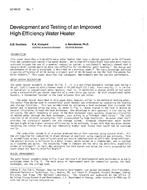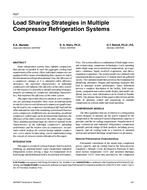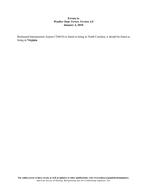The objective of this study was to determine potential application of vernacular passive cooling techniques to the largest stock of modern urban houses in hot-humid climate of Malaysia, which are brick terraced houses. Field measurement was conducted in two traditional timber Malay houses and two traditional masonry Chinese shophouses in March-April 2011 and October 2011, respectively. The results of the former showed that the indoor air temperatures were higher than the outdoor air temperatures by 1 °C (2 °F) during daytime under open window conditions and 2 °C (4 °F) at night under closed window conditions on average. Cooling of the indoor spaces likely depended on cross ventilation, solar heat controls by overhang, shade trees and presence of ceiling, and a cool outdoor microclimate. The results of the latter revealed that indoor air temperatures adjacent to small courtyards were lower than the immediate outdoors by up to 5-6 °C (9-11 °F) during daytime. At night, the indoor air temperatures maintained values similar to the outdoors. The small courtyards were effective to enhance night ventilation for structural cooling. In comparison, results of a field experiment obtained in two typical terraced houses in 2007 determined that indoor air temperatures were lowest in night ventilation condition. When assessed on the basis of an adaptive thermal comfort equation for hot-humid climates, the periods of indoor operative temperatures exceeding the 80% comfortable upper limit in the Malay houses, Chinese shophouses and night ventilated terraced houses were 47%, 8% and 42%, respectively on fair weather days. By comparing these evaluations and the relationships between indoor and outdoor thermal conditions of all houses, modifications to terraced houses for improving the indoor thermal comfort in naturally ventilated condition were proposed.
Product Details
- Published:
- 2014
- Number of Pages:
- 8
- File Size:
- 1 file , 3 MB
- Product Code(s):
- D-2014EHPB-12
- Note:
- This product is unavailable in Russia, Belarus


